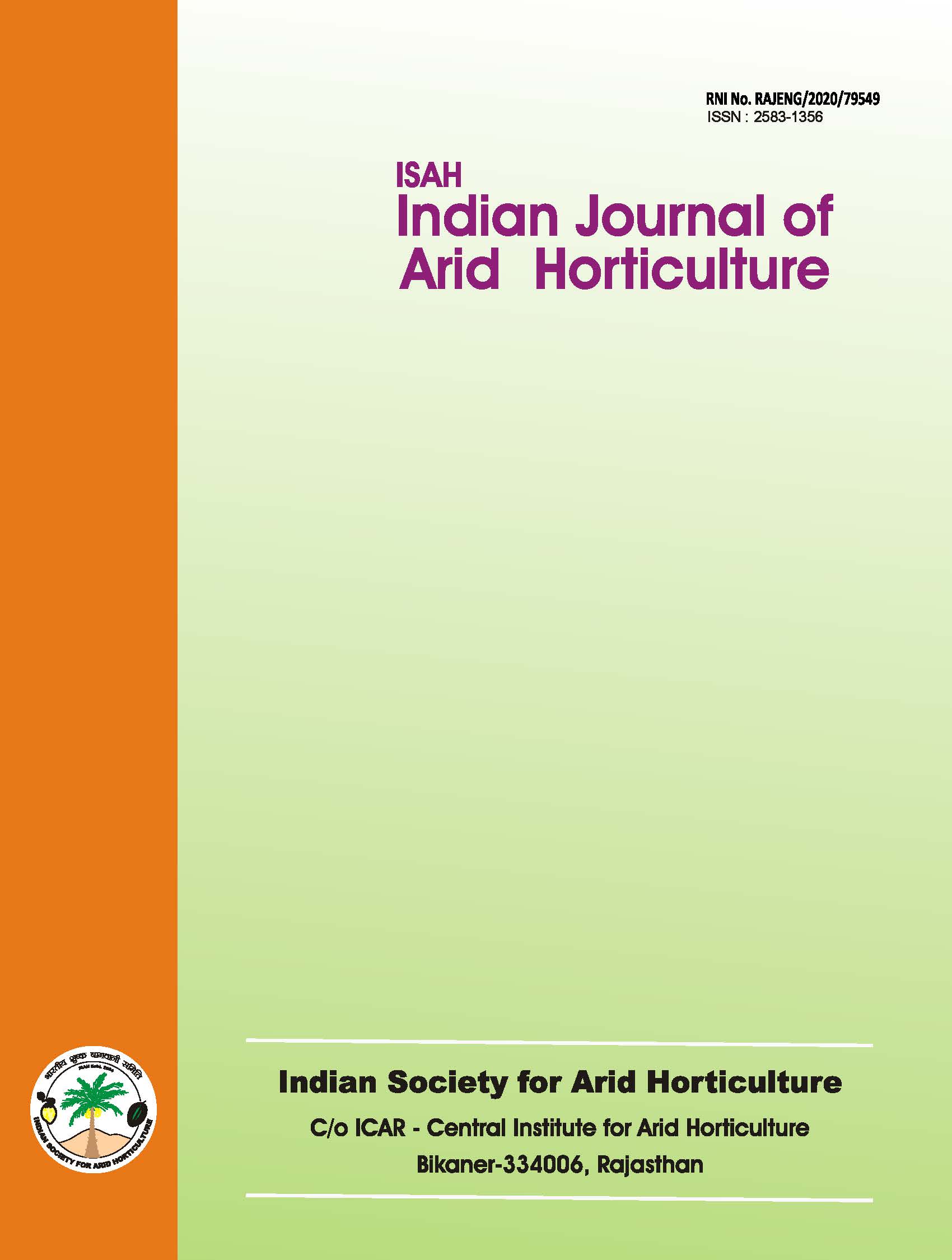In-vivo evaluation of fungicides against Lasiodiplodia theobromae infecting die back disease of mango (var. Alphanso)
Keywords:
Die back, fungicides, in-vivo, Lasiodiplodia, mangoAbstract
In vivo evaluation of fungicides showed Bordeaux mixture (1.0%) was found to be the most effective in controlling the die back disease of mango after each spraying and it has given cent per cent infection control along with thiophanate methyl, hexaconazole, propiconazole and hexaconazole + zineb. All these fungicides inhibit the growth of fungus in first and second spraying on both the mango orchard during 2011-12 to 2012-13 respectively. The study is to promote commercial cultivation of the mango var. alphanso by small and middle scale farmers.
Downloads
References
Ahmad, I., Mahmood, A., Majeed, K. and Saleem, A. 1995.Evaluation of various fungicides against die back disease caused by Diplodia natalensis in mango. Pakistan Journal of Phytopathology,7: 208-209
Bokhari, A. A., Sahi, S. T., Khan, M. A., Ahmad, R. and Ud- din, I. 2008. In vivo studies on the biological and chemical control of guava decline caused by different soil borne pathogens. Pakistan Journal of Agriculture Science, 45(1):54-56.
Li, H. Y., Cao, R. B. and Mu, Y. T. 1995. In vitro inhibition of
Botryospheria dothidea and Lasiodiplodia theobromae and chemical control of gummosis of Japanees apricot and peach trees in Zhejiang province, China. Crop Protection, 14:187-191.
Mahmood, A., Saleem, A. and Akhtar, K. M. 2002. Mango decline in Pakistan and its management. Pak. J. Phytopathol., 14: 40-43.
Mukherjee, S. K. 1950. Its allopolyploid nature. Nature, 166:196-197.
Prakash, O. and Raoof, M. A. 1989. Dieback disease of mango (Mangifera indica L.), its distribution, incidence, cause and management. Fitopathologia Brasiliensis, 14: 207-215.
Shelar, S. A. 1994. Studies on die back disease of mango (Mangifera indica L.) caused by Botryodiplodia theobromae Pat. thesis (Unpub.) M. Sc. (Agri.), submitted to M. P. K. V., Rahuri (MS), India.

